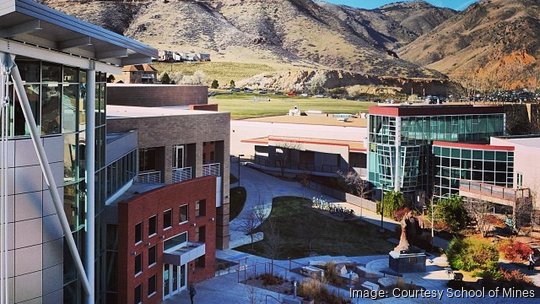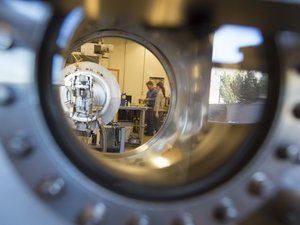
The U.S. Department of Energy awarded two Colorado organizations funding to explore geologic hydrogen technologies and its natural generation.
Geologic hydrogen, often thought of as the future of green and clean energy, refers to natural and continuously produced subsurface hydrogen deposited from reactions between water and Earth’s subsurface. According to the University of Oxford’s science magazine, hydrogen has been discussed as an energy source and potential solution to the world’s fossil-fuel problems for more than 150 years.
Out of 16 projects funded as part of this program, two hail from Colorado. Colorado School of Mines in Golden is set to receive $1.5 million and Denver-based clean energy startup Koloma will get $900,000 from the U.S. Department of Energy.
These funds are part of the $20 million awarded by the Department of Energy’s Advanced Research Projects Agency-Energy, which focuses on overcoming technical barriers related to a specific energy discipline.
This is the first time the U.S. government has competitively selected teams to conduct this type of technological research focused on stimulation and reservoir management of geologic hydrogen.
“This energy resource would potentially produce no carbon emissions when burned or used in a fuel cell and will support the Biden-Harris Administration’s efforts to reduce costs and enable commercial-scale deployment of clean hydrogen,” the Department of Energy said in a statement. The selected projects will "explore early-stage research and development to advance low-cost, low-emissions hydrogen, which will help create good-paying jobs and new economic opportunities in communities across the nation while also helping meet President Biden’s ambitious climate and decarbonization goals.”
Colorado School of Mines and Koloma, along with eight other universities, labs and businesses, will explore the production of geologic hydrogen through stimulated mineralogical processes.
The Department of Energy is seeking “technologies that stimulate hydrogen production from mineral deposits found in the subsurface, including developing our understanding of hydrogen-producing geochemical reactions and how to enhance or control the rate of hydrogen production.”
With the funds, Mines will utilize data from geologic, geochemical and rock physics to build technology and models that characterize and monitor simulated geologic hydrogen production. The school will also build tools to identify hydrogen reserves and their processing potential.
“Growing evidence — including pioneering research at Mines — has shown that significant amounts of naturally occurring hydrogen exists, or can be stimulated, within the Earth’s crust,” Mines said in a statement. “Geologic sources are anticipated to provide [a] pathway to more cost-effective hydrogen production than other forms of processed hydrogen and could play a key role in meeting alternative energy needs for the future.”
Mines’ research will be co-led by the school’s Yaoguo Li and Mengli Zhang. Li is a geophysics professor and director of the school’s Center for Gravity, Electrical and Magnetic Studies. Zhang is a research assistant professor at Mines and co-director of its Center for Gravity, Electrical and Magnetic Studies.
Scientists from the University of Colorado Boulder, California Geological Survey, GE Aerospace, Terranta, the U.S. Geological Survey and the Lawrence Berkley National Lab will work with Mines on this research, the school said.
The $900,000 given to Denver-based Koloma will fund work in its lab in Columbus.
The startup, which raised $245.7 million in equity on Feb. 9, aims to find plentiful hydrogen in deep underground rocks and extract it without creating more greenhouse gases. It licenses technology from Ohio State University.
An additional six organizations, none of which are based in Colorado, also received funds to explore subsurface engineering for hydrogen reservoir management. This includes discovering technologies “relevant to the extraction of geologic hydrogen,” according to a statement from the Department of Energy.








